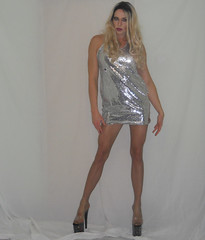This Artificial Heart ‘Patch’ Can Repair You After A Heart Attack
Scientists at Duke University have created a fully-functioning artificial heart muscle that can actually be patched over the damage caused by a heart attack.
This beating ‘patch’ then acts like a giant living plaster and is able to beat just like a healthy muscle and can even receive the electronic instructions sent to the rest of the heart.
It is a remarkable step forward in how we treat patients who have suffered a heart attack.
The heart, very helpfully, is one of the few organs that cannot regenerate itself which means that after a heart attack the damage done is permanent.
The dead muscle is then often turned into scar tissue which is neither elastic enough or capable of transmitting the electrical signals needed to tell the muscles how to behave.
These breakdowns in function often lead to something known as heart failure which can over a long period of time, become fatal.
Current experiments to combat this have included injecting the affected area with stem cells – the remarkable ‘blank’ cells of the body that can be programmed to become anything we need them to be.
Unfortunately this hasn’t worked as well as expected. Fewer than 1% of the cells survive and even less then actually transform into the cardiac cells that are needed.
A patch however accepts that we can’t regrow the heart and instead acts just like an artificial limb.
Placed over the dead tissue, the patch is made up of artificially grown heart cells which allow it to contract just like a real heart muscle and even receive and conduct the electrical signals sent throughout the organ.
The biggest hurdle for the researchers has been creating the patch at scale. The largest they’ve managed thus far reaches to around 16 square centimetres.
That might sound quite big but the patch is only a few cells thick. For it to be resilient enough to be patched onto a human heart it’s going to need to be a lot thicker and a lot tougher.
“This is extremely difficult to do, as the larger the tissue that is grown, the harder it is to maintain the same properties throughout it,” explains Nenad Bursac, professor of biomedical engineering at Duke.
“We are actively working on that, as are others, but for now, we are thrilled to have the ‘size matters’ part figured out,” he added.
www.huffingtonpost.co.uk/entry/this-artificial-heart-patch-can-replace-entire-muscles-after-a-heart-attack_uk_5a1d9968e4b06a14100a6301





 ”
”




